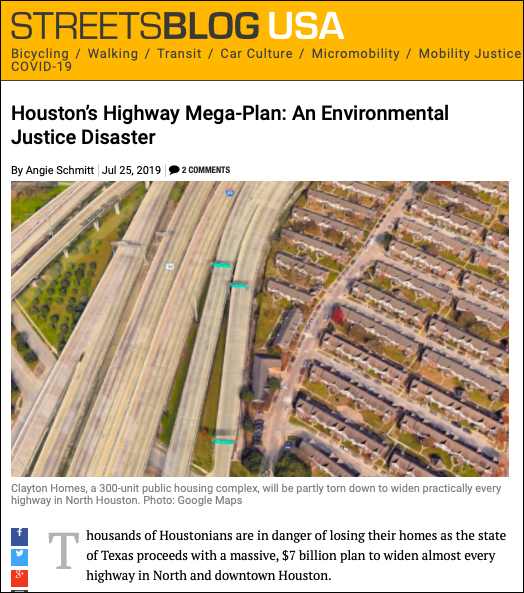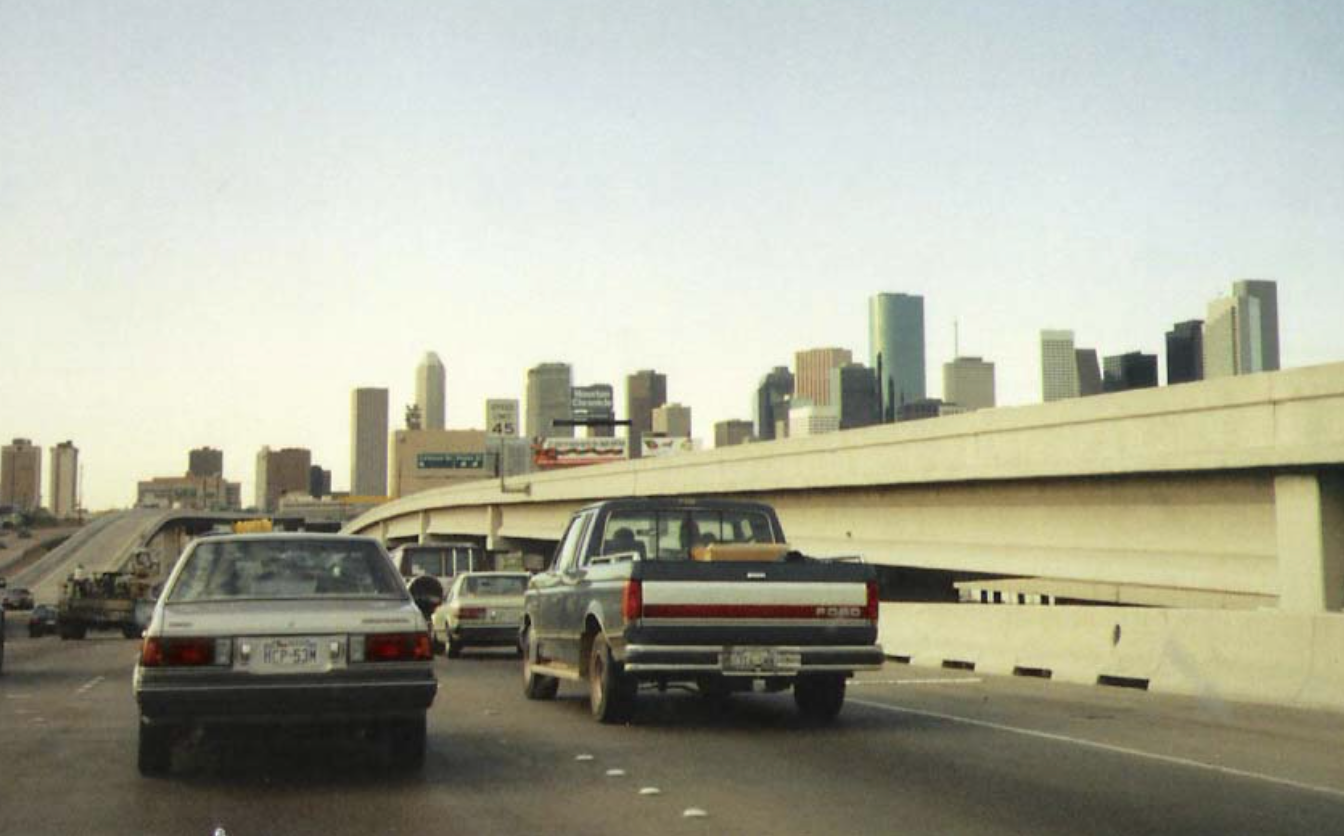One of Texas's most-notorious highway expansion projects is being put on pause, thanks to the efforts of local advocates and a U.S. Department of Transportation that's newly committed to mitigating the racist impacts of federally funded transportation projects.

Earlier this week, officials at the Texas Division of the Federal Highway Administration asked the Texas Department of Transportation to stop soliciting contracts for its proposed $7-billion North Houston Highway Improvement Project, citing concerns that the proposal would violate Title VI of the Civil Rights Act by subjecting communities of color to increased levels of air pollution, displacement and flooding.
"To allow FHWA time to evaluate the serious Title VI concerns ... we request TxDOT pause ... until FHWA has completed its review," Division Administrator Achille Alonzi wrote to TxDOT Executive Director James Bass on Monday, but not made public until Thursday.
Often referred to by advocates as simply "the I-45 project" for the mega-highway upon which much of the construction would be focused, the massive effort would expand and re-route roughly 25 miles of the Space City's aging downtown and northside freeways, displacing 1,000 disproportionately Black, Brown, and low-income households, along with a swath of businesses that employ almost 25,000 Houstonians.
TxDOT argues that the expansion is necessary to reduce congestion in the fast-growing region, despite decades of evidence that adding lane miles has the opposite effect. Some advocates for the proposal have also claimed that the new highway design would be greener than what the city has now because it would bury some sections of the most high-polluting roads — but opponents have pointed that the state DOT wouldn't be responsible for paying to actually put anything on those highway caps, and the COVID-battered city government probably won't be able to afford it, either.
An FHA willing to intervene in behalf of cities in the face of troglodyte state DOTs could do *a lot* of good. https://t.co/FM8WDfuJTA
— M. Nolan Gray (@mnolangray) March 12, 2021
Mobility justice and environmental advocates, meanwhile, have almost uniformly decried the I-45 project as a boondoggle that recalls some of the most racist transportation projects of the urban renewal era, not to mention a massive step backwards for climate change.
"If you wanted to design a project that demonstrates to people how not to improve air quality — and how not to do it equitably — this would be it," said Dr. Bakeyah Nelson, executive director for the Houston Air Alliance, one of the organizations that successfully asked the FHWA to intervene. "This is the poster child. It just represents so much of what is bad about the way the U.S. does highway infrastructure across the board."
Or, as Michael Skelly of the Make I-45 Better coalition succinctly put it: "It's a project that would make Robert Moses blush."
Today we sued TxDOT over the misguided I-45 expansion project. There’s a way to address our transit challenges, but more and wider highways is not it. We can’t build a competitive county with transportation policy that hasn't changed since the 50s.
— Lina Hidalgo (@LinaHidalgoTX) March 11, 2021
The I-45 project was delivered a further blow on Thursday when Harris County, which includes the city of Houston, sued TxDOT under the National Environmental Policy Act, alleging that the agency had leaned heavily on obsolete science in its environmental review process and undersold the devastating impacts the project would have on surrounding communities. Harris County judge Lina Hidalgo supported the suit, emphasizing, "We can’t continue to support transportation that prioritizes cars over people" in a statement to local media.
Safe streets advocates hope the one-two punch will send a clear signal that Houston has a more progressive vision for its transportation future than the state department that maintains many of it largest roads — and some are hopeful that having a former mayor at the helm of the DOT might also help stop the many, many bad state-led projects just like it across Texas, and the country at large.
"It's about time someone stood up and told TxDOT that we don't want them to plan our city anymore," said Bike Houston Executive Director Joe Cutrufo. "Houston's streets will never be truly safe for walking and biking if we let TxDOT keep inviting more traffic."
TxDOT's plan for Houston's highways isn't dead just yet. Even if the Title VI violation sticks and the lawsuit forces the agency to redo its environmental review, the state will still need to be sold on a more people-friendly design. Some advocates have come out in support of an alternative proposal called Vision C, which would incorporate more bus rapid transit and active transportation infrastructure, but the state agency has so far given it the cold shoulder.
Above all, sustainable transportation advocates across the nation will be watching what happens next — especially to see whether Buttigieg will make good on his big talk about dismantling racist and polluting freeway projects.
"We — and when I say we, I mean Black and brown people — are tired of our lives being negotiated away for the benefit for everyone else," added Nelson. "This project is the Biden Administration's first real opportunity to send the message that this antiquated thinking about highways is not going to be tolerated any longer."






